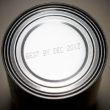Microbes can easily collect and multiply in your belly button. Even foreign objects can get trapped in it. Because of this, it’s not unlikely for you to end up facing a problem with your belly button, and it’s usually something that is accompanied by discharge, which can have a very horrid odor.
In this article, we will take a quick look at some of the usual causes of belly button discharge:
Bacteria
Your belly button is a place that’s dark, warm and moist. As a result, it serves as a playground for bacteria. In fact, doctors say that your belly button houses over 70 types of bacteria.
Some of those bacteria are friendly, while others are hostile. And when the evil ones outnumber the nice ones, bacterial infection of the belly button happens. You can tell that it’s a bacterial infection you are facing if there’s foul-smelling discharge coming from your belly button, which is either yellow or green in color.
Yeast
Just like bacteria, yeast loves thriving in places like your belly button. And this is why it’s another very common cause of belly button discharge. By the way, yeast is a fungus.
If what you are having is yeast infection, it’s very much likely for your belly button to give off whitish discharge that has a rather thick consistency. Also, you may have red rashes that itch like crazy in the belly button area. More often than not, yeast infection of the belly button stems from poor hygiene practices.
Diabetes
Are you diagnosed with diabetes? Then don’t be surprised if one of the problems (there are many of them, so it’s important to control your diabetes!) you have is belly button discharge.
Having diabetes causes your blood sugar levels to increase, which is something loved by yeast. Because they thrive on sugar, it can be very easy for yeast to multiply, resulting in an infection. Aside from dealing with the infection itself, managing diabetes is also an essential step to take.
Cysts
Put simply, cysts are growths that are filled with either pus or fluid. According to doctors, there are two types of cysts that may form in your belly button.
One of them is referred to as urachal cyst. You see, the belly button of a fetus has a part called the urachus, which connects the umbilical cord to the urinary bladder. When the baby is born, the urachus closes, but not all the time. Sooner or later, the urachus that has not closed properly may form a cyst.
Another type of cyst that may show up in the belly button is called sebaceous cyst. Basically, it’s just like a pimple — oils released by the sebaceous glands become trapped, causing a red and often painful bump to form.
Surgery
Did you just undergo surgery to deal with a problem concerning the belly button? If so, it’s very much likely to be the reason behind that belly button discharge you are having.
Make sure that you get in touch with your doctor right away if there is discharge after having a belly button surgery. That’s because it is usually a sign of an infection, which is not a good thing most especially for someone who had just went through surgery. Needless to say, it warrants immediate medical care.
It is a good idea for you to consult a doctor if you have belly button discharge even if you believe you have figured out the root cause of it. This is most especially true if:
-Your belly button feels tender
-The area around the belly button appears red
-There is abdominal pain and/or soreness
-There’s pain when or trouble with peeing
-You have a fever













